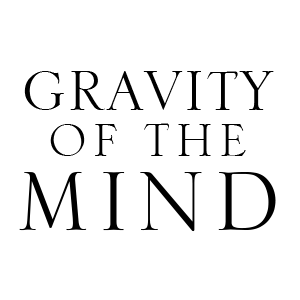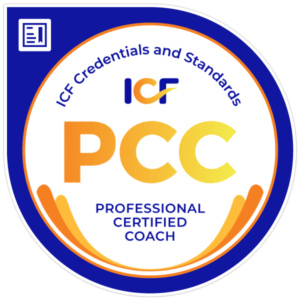Understanding your own psychology–the missing piece of the jigsaw
About 12 years ago I began to take a deeper interest in the workings of the human mind. My curiosity mainly sprang from a personal interest in wanting to be a better, more evolved version of myself. My first port of call was a mind technology called Neuro-Linguistic Programming (NLP). I found it a fascinating approach to understanding the workings of the mind and why people think the way they do. Simply put, I wanted to feel better more often. NLP offered a conceptual framework and a set of approaches and techniques for changing my feeling state and the way I thought. And it was useful, practical and fun. Life did get more interesting and, as a result, my personal and professional life ticked along quite nicely.

After a few years of training, culminating in a qualification in Cognitive Hypnotherapy, and opening a practice in Harley Street, I had established professional credentials and a vast knowledge base. I had in my locker a range of therapeutic and coaching techniques for helping other people feel better more often and to overcome whatever symptoms of malaise they were experiencing, whether it was anxiety, depression, habits and compulsions or phobias. As a business coach I loved helping my clients to create a more positive mind-set and to see their circumstances from a clearer and more objective perspective.
I particularly enjoyed understanding the structure of the language people used to describe their own personal story and their relationship to themselves and their lives. I was curious about how we as human beings create mental maps to navigate the day to day territory of life. I knew at an intellectual level that perception is not reality, but our own version of the world being projected out. I worked with the understand that all behaviours stem from our thinking, conscious and unconscious, and I bore fruit from the change work I did around the beliefs, values, insecurities, ideas and personal stories that my clients presented.
There was however a missing piece of the jigsaw that I could not put my finger on. Intuitively, throughout my training I had had a sense that we did not need to think our way to wellbeing. My feeling was that if we could simply get rid of the ‘bad stuff’, what would be revealed would be the higher and better version of ourselves that so many people aspire to become. And so, I saw our own personal evolution as a subtractive process, letting go of our fears, insecurities, and the beliefs that hold us back. However, all I knew at that time was that we had to ‘work at it’, and that this was a process of psychological engineering, an endeavour to create a healthier and kinder psychological landscape.
There were also the deeper questions in the back of my mind about life, the universe and everything. If this is the one life we have, there was be more to it – a reasonable philosophical line of enquiry I thought at the time.
In a nutshell, the missing link for me was an understanding that brought together psychology and the spiritual essence at the heart of what it is to be a human being. After all the word psychology means ‘logic of the psyche’ and the original meaning of psyche is soul. But with all the advances in neuroscience and brain imaging, the soul remains beyond the grasp of modern science, albeit those at the frontiers are putting forward theories about the ‘seat of consciousness’ that lies within our brains. However, from where I now stand, mind is not brain. Our brains enable us to be alive, to think and to be aware, but who I am, and my experience of having a mind is not located in a lump of grey stuff, albeit, a lump of grey stuff that is the pinnacle of evolution – a collection of 85 billion individual neurons, each of which is thought to make between 10,000 and 100,000 connections to other neurons, making the brain a computer that is far beyond what be created with current technology. But as Sydney Banks put it:
The brain is biological
The mind is spiritual
It was in June 2014 that I was introduced to an understanding of the mind that truly was, for me, the missing piece of the jigsaw. The Three Principles Paradigm united what I now realise was my understanding of the mind based on the study of people’s behaviours and theories about how and why human beings have evolved to think the way they do with a fundamental way of understanding how our psychological reality is created and experienced. I have Stuart Norman, a fellow coach and therapist, to thank for giving a talk at Regent’s College introducing the Three Principles Paradigm which sparked my curiosity. Although I was at that time somewhat sceptical, and amongst those in the room who were throwing cabbages at Stuart, albeit, gently and lovingly, which he sidestepped with grace and candour. As we are all wont to do, I was comparing what I was hearing to what I already knew, an intellectual endeavour which is such a useful tool, but can limit our capacity to see something new, with fresh eyes.
As I write it seems longer ago than the three and a half years it is, because everything has changed, albeit everything is the same.
It was shortly after the talk that everything clicked for me, but in a manner that I had up until that point not been used it. I had grown accustomed to learning theories, models and techniques, accumulating a data bank of knowledge and skills which I then applied, in both my professional and personal life. I saw the wood and not the trees.
As I have learned, memory can be a seductive beast and what I now recall as my first major insight has been blurred through the mists of time. However as best as I can describe it, my first major insight into what the Three Principles Paradigm is pointing to carried with it a huge sense of knowing to it, as if something had been revealed to me that I had always known, but had become obscured. It felt true. It was powerful. In a moment, the realisation I had was:
We all have perfect mental health, but it gets covered over with a fundamental misunderstanding of the source of our psychological experience.
Now, that may not seem so different to what I had learned. But the major difference was that I had a visceral experience that acted as a major software upgrade to my human operating system. And this insight was in many ways, beyond words. As best as I can describe now, I had a profound realisation that all my (and anyone’s) own beliefs, ideas and insecurities were not fundamentally true and, most importantly I did not need to replace them with something more empowering. In some ways this did not make sense at an intellectual level, because we need to believe something, right? Well, as I deepened my understanding of the Three Principles Paradigm I discovered, and will continue to discover for the rest of my life, what limits us and what holds us back from living a fulfilling life, and riding the waves of life with grace, is a fundamental misunderstanding of where our experience is coming from.
With this in mind, imagine already living in a world where you have everything you need and there truly is nowhere to get to, and nowhere to be. What if this world is already inside you, right beneath your nose? What if you possessed a deep, embodied understanding of how the human operating system and your own mind really work? What would be the implications for you?
And specifically, what if the Three Principles Paradigm is pointing is a powerful truth about how the human mind? And from looking in this direction, what if it were true that:
- You cannot have a psychological experience without the creative power of thought in the moment being included. You cannot experience anything without thinking it.
- An understanding of how your mind only works one way can fundamentally change your relationship to yourself and the world around you for the better.
- Looking in the direction of the source of your experience is a consistently powerful way to fall out of unproductive or unhelpful states of mind and thinking patterns.
- Insight into how your mind works acts as powerful catalyst for subtracting what you don’t need in your personal psychology, and as result, for revealing what you have going for you.
- There is a source of wellbeing and resilience inside of you that is never damaged or tainted and never goes away.
- Nothing on the outside can hurt you and nothing on the outside can help you.
- Nobody is broken, nobody needs to be fixed.
- Happiness, fulfilment and peace of mind can only be found by looking inside.
- It is through insights and realisations that arise from within, that all change and personal evolution takes place.
- We are spiritual beings having a human experience and not human beings seeking a spiritual experience.
What if…

